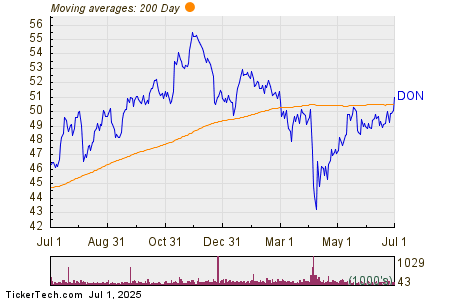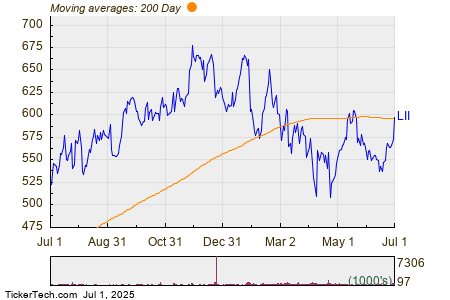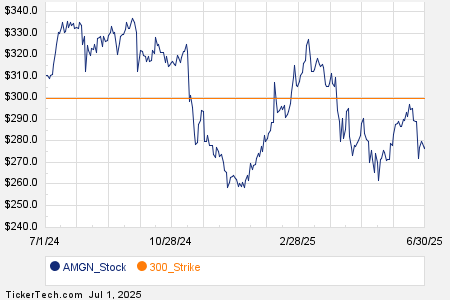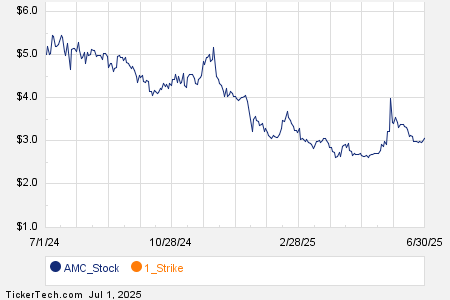
It’s been an eventful quarter for The Walt Disney Company (NYSE:DIS) under the stewardship of CEO Robert Iger. The company’s Q1 earnings report, released on February 7, 2024, sparked a fervor among shareholders, with the stock witnessing a surge of over 6% in after-hours trading, followed by an 11.5% uptick in the regular session, accompanied by a notable spike in trading volume. This robust investor response was evidently buoyed by several compelling updates, including a sports-streaming partnership announcement with Warner Bros. Discovery (WBD) and Fox (FOXA) the previous day.
The solid Q1 figures and the company’s strategic initiatives have evoked optimism in the market, indicating a potentially promising trajectory for Disney. Prior to the earnings, while the stock had initially trailed the S&P 500, it has since outperformed the market.
Despite the recent price surge, Disney remains an attractive long-term investment proposition. Iger’s proactive cost-cutting measures, coupled with optimistic growth projections, offset concerns about certain valuation metrics. However, the real litmus test will be the forthcoming earnings call, offering investors a deeper insight into Disney’s operational landscape.
Q1 Performance Evaluation
The standout metric from the Q1 report was Disney’s free cash flow – a stark reversal from the prior quarter’s cash outflow of approximately $2.2 billion to generating nearly $900 million in available cash. This positive shift, albeit partly bolstered by the abatement of Hollywood strike-related disruptions, underscores the efficacy of Iger’s prudent fiscal policies.
Disney has set its sights on achieving $8 billion in total free cash flow for the fiscal year, driven by a frugal spending approach initiated under Iger’s leadership, targeting $7.5 billion in annualized cost-saving initiatives. However, the company faces a conundrum with its expenditure on D+ and theatrical productions, notably exemplified by the substantial financial commitment of approximately $75 million for the exclusive rights to Taylor Swift’s concert film.
While such strategic acquisitions may underscore Disney’s market foresight, the juxtaposition with its stringent cost-cutting endeavors is a cause for contemplation. Disney’s pursuit of third-party content, albeit commercially astute, represents a pivot from its initial emphasis on proprietary intellectual property within the D+ platform.
The augmenting significance of advertising revenue within the streaming domain could herald a shift from the platform’s erstwhile premium, ad-free model. This shift in strategy, while reflective of changing market dynamics, epitomizes a departure from Disney’s initial subscriber-centric approach.
The stabilizing debt position, dividends, and share repurchase activity, while eliciting enthusiasm in the market, has raised apprehensions about the company’s prioritization of aggressive deleveraging as a prudent capital allocation strategy.
Disney’s Financial Maneuvers and Strategic Pivots
In a recent announcement, Disney revealed a $3 billion repurchase initiative, prompting varied interpretations within investor circles. Some see it as a savvy financial move, potentially reducing the company’s borrowings, while others remain skeptical of the strategic implications.
Interest Expenses and Income Dynamics
The quarter witnessed a noticeable fluctuation in interest expenses, surging to $528 million from $425 million in the year-ago period. On the brighter side, interest income displayed a favorable trend, topping at $282 million, compared to $165 million previously. This resulted in a net decrease in interest expenses to $246 million against $300 million, thus offering a mixed financial outlook.
The Vision for Creating Value
Disney finds itself compelled to pursue rapid evolution given the current market dynamics. The foundational drivers for the company’s value creation lie heavily on its theme parks and the endeavors of the linear platform to establish a market equilibrium. Despite the impact of the pandemic on movie theaters, Disney maintains its optimism regarding the resurgence of this segment. There is a notable emphasis on leveraging content across various platforms, with the TV show Only Murders in the Building serving as a prime example of strategic cross-platform utilization.
Disney is poised to capitalize on its diverse content inventories, including D+, Hulu, and Freeform, seeking a more comprehensive and structured approach towards reusing and leveraging its assets. The intricacies of licensing out content versus utilizing it for in-house platforms underscore the strategic decisions faced by the company.
A Noteworthy Shift to Gaming and AI
The unexpected foray into the gaming landscape raised eyebrows, yet insights from the CEO’s remarks shed light on the underlying strategy. The company’s overture towards an expansive Disney World, potentially interconnected with Fortnite, presents a novel realm of user-generated content and engagement. The prospect of monetizing user-generated views through merchandise, facilitated by artificial intelligence, marks a pioneering move for Disney.
While the $1.5 billion investment in Epic Games triggers contemplation on its long-term impact, Disney’s historic approach to video game licensing receives scrutiny. The company seems to have underutilized its vast collection of video game content, a dormant asset awaiting revival. The potential fusion of AI and user-generated content creation represents an intriguing avenue, hinting at a future industry metamorphosis that media companies must anticipate.
The ESPN Streaming Experiment
Disney’s collaboration with Warner Bros. Discovery and Fox to aggregate sports content under ESPN’s streaming platform raises questions for some industry observers. The joint efforts appear as a complex interweaving of distinct entities, promising scale without the peril of outright acquisition. However, joint ventures often navigate arduous paths, particularly for companies shouldering disproportionate debt burdens. While the partnership aims to counteract the waning linear viewership, its intricate dynamics warrant a cautious outlook.
Though the specifics of Disney’s strategic maneuvers evoke diverse reactions, the company’s financial and strategic decisions keep investors and industry observers engaged in a dynamic dialogue.
Disney Stock Analysis: Navigating Valuation and Risks
Exploring Beyond the Surface
In assessing Disney’s financial outlook, the potential for ventures like integrating betting with ESPN raises an eyebrow. This foray into betting could reshape the landscape, offering a unique edge in the industry. Where would it take the entertainment behemoth? Part of that is dictated by another round of internal analysis, spanning valuation and potential hazards. Let’s dive into it, noting that Disney registers high on various SA grades like growth, momentum, revisions, and profitability. However, concerning its valuation, Disney’s stock seems to be skating on thin ice. Compared to the sector median, the stock comes off as overpriced, glaringly evident in metrics like EV/EBITDA. Yet, juxtaposing the five-year average metrics with the current readings presents a more enticing case, partly attributable to the pandemic’s influence. The current PEG also reflects a narrative slightly below the sector median. To cherry-pick, the recent hike in price nudges Disney closer to the 52-week high, along with comparisons to the sector median and lingering doubts concerning Iger’s remedial efforts. Yet an optimistic lens unveils that prevailing concerns could merely be lagging indicators, especially in a market upswing. Disney’s strategic moves, such as the reinstatement of its dividend and planned buyback, symbolize an emboldened management charting a delicate balance between debt obligations and shareholder gratification. This amalgamation of insights frames Disney’s stock as nothing short of a buy, particularly for proponents of its robust business model.
Risks and the Road Ahead
At this juncture, navigating risks is non-negotiable. The film slate is a pivotal focal point, especially after a string of lackluster performances, epitomized by the disappointing box office run of the latest Indiana Jones film. While Disney gears up with promising content, such as a sequel to the Pixar hit Inside Out and new entries in iconic franchises, the erratic nature of box office outcomes poses a lingering threat. The company’s push to transform a D+ series into a theatrical endeavor comes with its own set of uncertainties, although it could serve as a safeguarding play against risk. Cost-cutting initiatives carry the potential to backfire or enter a phase of diminishing returns, casting a shadow on revenue streams. Moreover, skeptics doubt Disney’s revenue trajectory, amplifying apprehensions about a tepid top line. Digging deeper, the risk associated with Disney+ and its advertising strategies looms large, potentially demanding more subscriber growth to assuage market expectations. However, Disney’s current focus on revenue-per-user tilts the scale, forging a formidable fiscal challenge. Lastly, macro factors like Fed policies and stock-market volatility remain omnipresent risks that could sway the company’s fortunes. Balancing growth potential and risks sketches Disney as a long-term buy, albeit with a cautious approach. The time-bound backdrop lends urgency to Iger’s revival mission, positioning Disney’s prized assets at a crucial crossroads. With a pinch of innovative strategic acumen, Disney’s stock appears poised to outshine the market in the foreseeable future.








